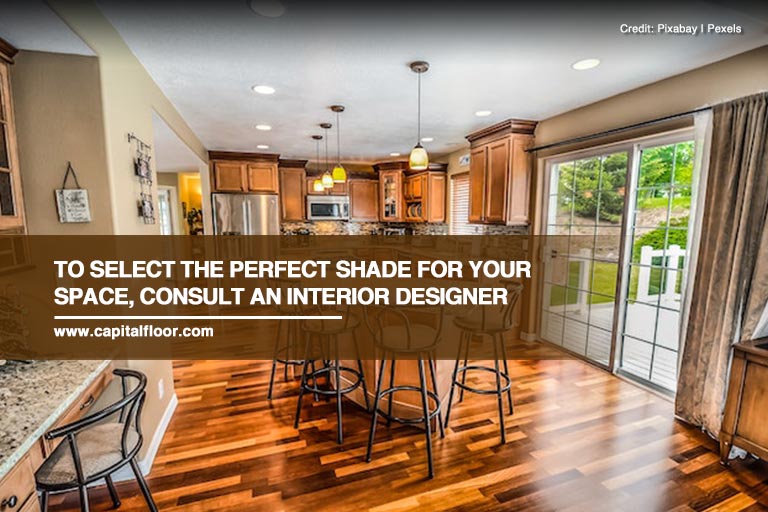Our showroom is open to the public. Please click HERE for more details.
Our showroom is open to the public. Please click HERE for more details.
Among the extensive selection of house flooring materials, hardwood is dubbed by homeowners as an all-time classic and favourite. With its high aesthetic versatility, multiple variants, the benefit to add home value, and easier maintenance, engineered wood flooring is popular among homes across the globe.
However, the world of wood flooring can be quite confusing and daunting at first glance, especially when you have to consider various factors like grades, species, and wood types.
As long as you understand the basics of engineered wood flooring, whether its about quality, durability, and functionality, you’ll be good to go. Here are the 11 things to consider when buying engineered wood floors:
Before you choose your desired flooring type, make sure that it is approved by the Programme for the Endorsement of Forest Certification (PEFC) forest stewardship council. Members of this council are considered global forest caretakers.
A PEFC approval will guarantee that the hardwood you’ve bought has followed the ecological guidelines imposed by the national government. Choosing these types of wood makes you both a responsible citizen and a conscientious homeowner.
Just like any home appliance, decor, or fixture, your hardwood flooring should also have a warranty. These company deals will help you have a fallback if anything goes amiss with your purchase.
A trustworthy brand should always have a warranty, so before you consider purchasing a plank of hardwood or strike a deal with a flooring company, find out if they offer a warranty. Engineered wood on sale may or may not have these safeguards, so make sure to clarify details first.

After you’ve purchased your materials, you can then proceed with installing the engineered wood flooring. The time frame for this process will depend heavily on how big your home is and how you plan on laying them out.
Wooden planks are usually glued or left floating. For spacious areas, it always has to be the former and the latter for small spaces. However, if you don’t have the tools and knowledge for the job, it’s best to hire a contractor to avoid any mistakes.
The quality of hardwood flooring depends primarily on how it was manufactured. Engineered flooring is made with a hardwood core, which is layered with a veneer on top and covered with plywood and sheets of fibreboard.
Any variety of the techniques used in this process can have a direct effect on the produced core thickness of the flooring. Ask as many questions as you can about how your chosen hardwood was constructed before making a decision.
Each type of hardwood flooring has its own grade level, which will determine its overall quality and its placement in your home. There are 4 grades of hardwood flooring.
Hardwood core thickness matters in terms of shelf-life and ease of installation. A durable wood flooring is engineered to have a ⅝” overall thickness or ¾”. The veneer must have a thickness of 3/16”.
However, due to the bulk production of these floorings, the thickness of each one can deviate from one another. You should check your purchased hardwood flooring ply and determine its core thickness uniformity.
Hardwood flooring can have a variety of textures, ranging from brushed, smooth, clean, vintage, and distressed. They can also be smoked, or burnt, depending on how it was extracted and processed.
A good rule of thumb is to use smooth texture for spaces meant for kids. This is to prevent any injury. Use vintage for bedrooms to add warmth and coziness.
The shelf-life and durability of hardwood flooring vary depending on many factors including the plank’s thickness, climatic condition, environment, home location, and exposure to friction and movement.
Particular species and brands also tend to be hardier, with white oak lasting twice as long compared to exotic variants like Brazilian cherry. When it comes to quality, the premium varieties include prime grade, rustic, characteristic, and classic.
Whatever the case may be, you can always lengthen the shelf-life of your hardwood floors through regular maintenance and proper upkeep.
Depending on where your hardwood is sourced, it will have plenty of variety when it comes to colour tone, durability, strength, and aesthetic appeal.
Engineered hardwood flooring can easily be remodelled, so you won’t have to worry about sticking to the original design.
Make sure to contact a company for engineered flooring near you to learn more about their wood sources for better remodelling options.

The best thing about hardwood flooring is its versatility. It can be stained and coloured before installation so you can easily redesign it if you want. Depending on what motif or theme you want, you can always consult with an interior designer for better visual planning.
Hardwood flooring can be finished with lacquer or oil, matte, or glossy. However, this finishing provides more than just aesthetic value; it also serves as a protective covering that makes your floor more durable.
Due to its use of natural materials, hardwood flooring tends to have more variety compared to synthetic flooring. Depending on the species of the tree, where it was harvested, and how it was processed, each ply of engineered hardwood is unique.
If you need engineered flooring in Toronto for your construction or renovation project, contact Capital Hardwood Flooring at (416) 536-2200.